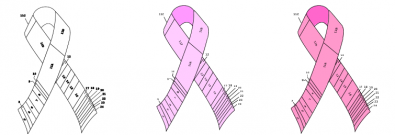This study collects information about people who have inherited faulty cancer genes.
A small number of men and women have inherited faulty genes which means that they are at an increased risk of developing certain cancers. Two of these genes are called BRCA1 and BRCA2 and when someone has a fault in these genes they are more likely to develop cancers of the breast, ovary or prostate. Testing for mutations in these genes has been part of clinical genetics practice for a number of years and as such NICE guidelines include specific screening programmes and some interventional procedures to lower risks for those that have these mutations. In addition to BRCA1 and BRCA2, other genes have been identified as being associated with breast and/or ovarian cancer risk although the risk is generally much lower and not as well understood as BRCA1/2. Some clinical genetics centres now offer testing for some of these other faulty genes.
Embrace is currently interested in the following genes:
- BRCA1
- BRCA2
- PALB2
- ATM
- CHEK2
- BRIP1
- RAD51C
- RAD51D
- BARD1
- PTEN
- TP53
- CDH1
The EMBRACE study, which stands for Epidemiological Study of Familial Breast Cancer, aims to continue its register of BRCA1 and BRCA2 families and to create a register of families who have a fault in the other genes and find out more about their associated cancer type and risk. The people taking part will be asked to fill in a questionnaire and to give blood samples, which will be looked at in a laboratory, as part of this research. Some of the recruits will be followed up with further questionnaires and for blood samples. Carriers and Non-Carrier members of these families can take part in this study as can those members affected or not affected with cancer.
With this information they hope to find out
- How many people go on to develop cancer
- What other factors may play a part in the development of cancer including lifestyle factors, the individuals’ genetic make up
- How the cancer risk may be reduced
- How changes or markers in the blood could be used to be able to detect early cancers
The findings of this study will continue to collate information that will help doctors in the future to decide the best way to manage someone who has these faulty genes.
The study has been recruiting for over 20 years, since 1998, and is funded by Cancer Research UK
To see our latest privacy notice, please click here: [Privacy notice]

